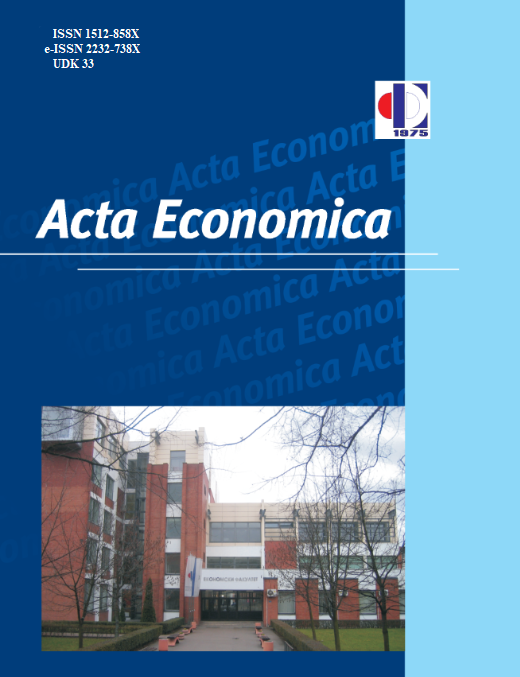CLIMATE CHANGE AND ECONOMY IN NIGERIA: A QUANTITATIVE APPROACH
DOI:
https://doi.org/10.7251/ACE2134169MAbstract
This study has examined the potential impacts of climate change on Nigerian economic growth using a time series data (1980-2017). In doing so, an econometric model has been constructed based on theoretical and empirical literatures of the climate change economics, then it has employed a growth model adapted from the Solow growth model. The research work found that annual average rainfall has a significant effect on economic growth both short-run and long-run. Also, there is a high degree of positive and significant relationship between carbon emission, foreign direct investment, gross fixed capital formation and economic growth under investigation. The result also revealed that this relationship between climatic factors and economic growth is more noticeable in the long run. In addition, an inverse relationship was found between forest depletion, population growth and economic growth in the long run. Finally, there is unidirectional causality between annual average rainfall and economic growth in Nigeria. It is therefore recommended that the stakeholders and the general public should build green economy that enables sinking carbon and promotes carbon market in the long-run.

